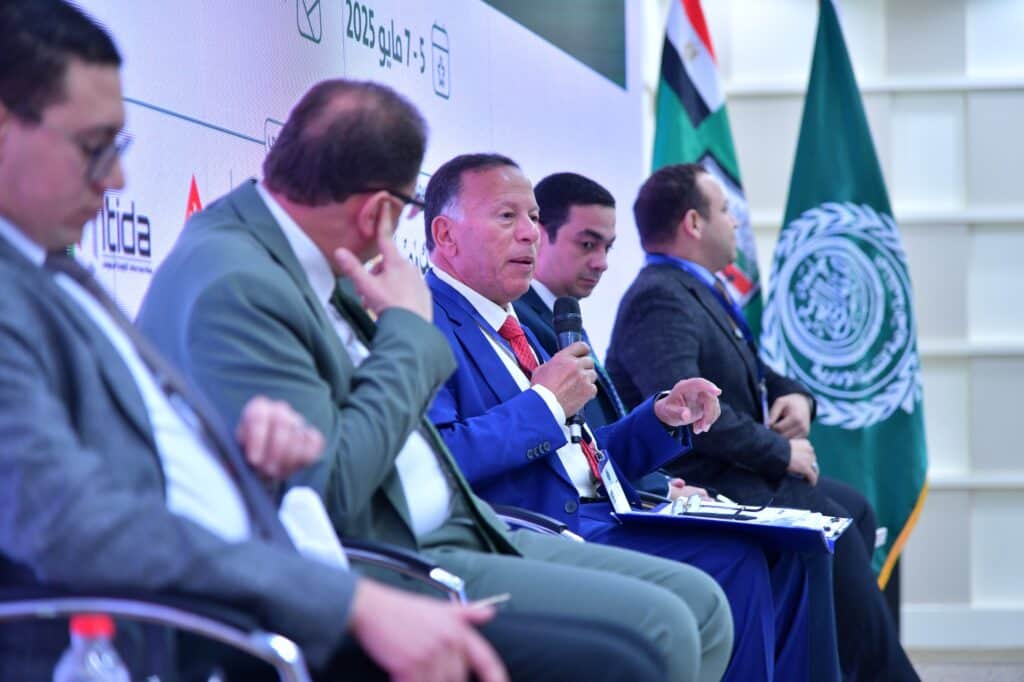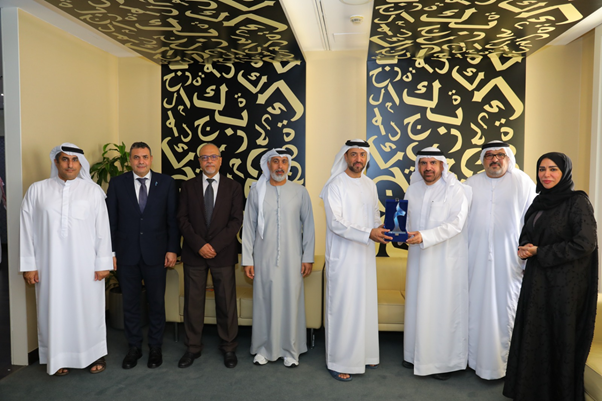Cairo
As part of the second day of the First Arab Judicial Conference, organized by the Arab Administrative Development Organization (ARADO) – League of Arab States, in cooperation with the State Lawsuits Authority of the Arab Republic of Egypt, two specialized sessions were held to discuss the legislative and ethical challenges related to the use of artificial intelligence in judicial systems. The sessions were attended by a select group of judges and legal experts from various Arab countries.
His Excellency Counselor Dr. Khairy Al-Kabbash, President of the Court of Appeal of the Arab Republic of Egypt and Chairman of the Policy and Legislation Committee of the Arab Federation for Digital Economy, chaired the third session, titled “Legislative and Ethical Challenges of the Use of Artificial Intelligence in the Judiciary.” In his opening remarks, he emphasized that the conference represents an important platform for shedding light on the potential of artificial intelligence in developing the judicial structure and enhancing the efficiency of the justice system. He emphasized the need to address the legal and ethical considerations accompanying this transformation, as well as the importance of building human capacity capable of absorbing these technologies.
The session was attended by a number of prominent speakers, including:
- Counselor Dr. Tamer Raymond Iskandar, President of the Board of Commissioners of the Supreme Constitutional Court, addressed the topic of artificial intelligence and judicial security.
- Counselor Osama Hanafi, Chief Prosecutor at the Court of Cassation and an expert with the United Nations Office on Drugs and Crime, spoke about the ethics of using artificial intelligence in the judicial environment.
- Counselor Hossam El-Din Allam, Counselor at the State Lawsuits Authority, presented the challenges facing the justice system in the Arab world when integrating artificial intelligence technologies, calling for clear legislation that protects rights and preserves justice based on Islamic values.
- Dr. Mary Mitzy, Professor of Commercial Law and International Arbitration at Queen Mary University of London, reviewed the European Federation’s experience in regulating the use of artificial intelligence, particularly in the judicial and security sectors.
- Professor Mustafa Gamal, an information security specialist and lecturer at the Information Technology Institute, addressed the risks of privacy violations and data integrity in the forensic AI environment.

- Counselor Ahmed Rashad, a member of the Policies and Legislation Committee of the Arab Federation for Digital Economy, also participated in the fourth session titled “Governance of the Use of Artificial Intelligence in Judicial Systems.” The session was chaired by Counselor Dr. Walid Abdel Moneim, Legal Advisor to the Information Technology Industry Development Agency (ITIDA). He discussed the legal challenges related to privacy and data protection within the judicial governance system.The two sessions concluded with the need to develop unified Arab legislative frameworks to regulate the use of artificial intelligence in the judiciary and enhance human capacity building to keep pace with digital transformations, while preserving ethical values and justice. The discussions also emphasized the importance of exchanging experiences and coordinating efforts between Arab and developed countries to ensure the responsible and safe use of modern technologies in the judiciary.The conference sessions also included rich discussions on the potential of leveraging modern technological models to enhance judicial transparency and expedite procedures, while also highlighting the ethical and legal challenges that require careful handling and international cooperation.The sessions featured open discussions between speakers and participants, emphasizing the importance of enhancing Arab and international cooperation to establish unified legal frameworks, supporting judicial innovation, and building human capacity to address accelerating digital transformations.










